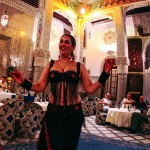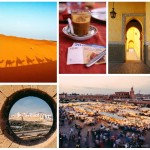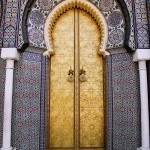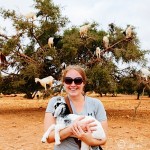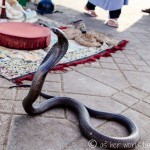Okay everyone, grab a sprig of mint and hold it up to your nose — you’ll need it to get through today’s post. The suffocating stench of Fes’s leather tanneries is strong enough to overwhelm you through the screen of whatever device you use to read this blog.

But don’t let the smell deter you — these views are worth it.
Check out the first batch of photos, then I’ll explain what’s going on here.
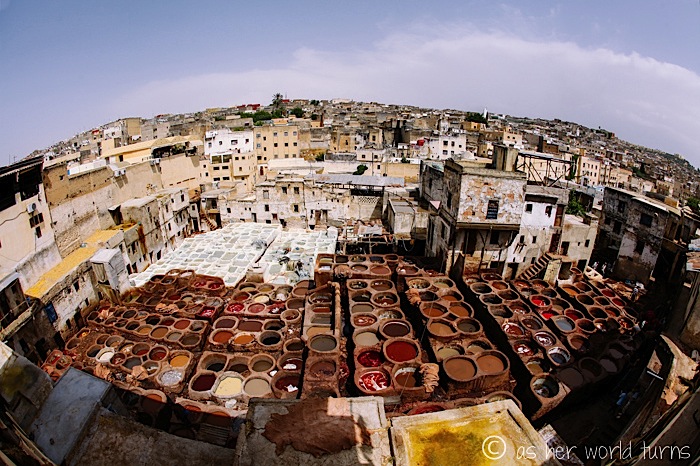
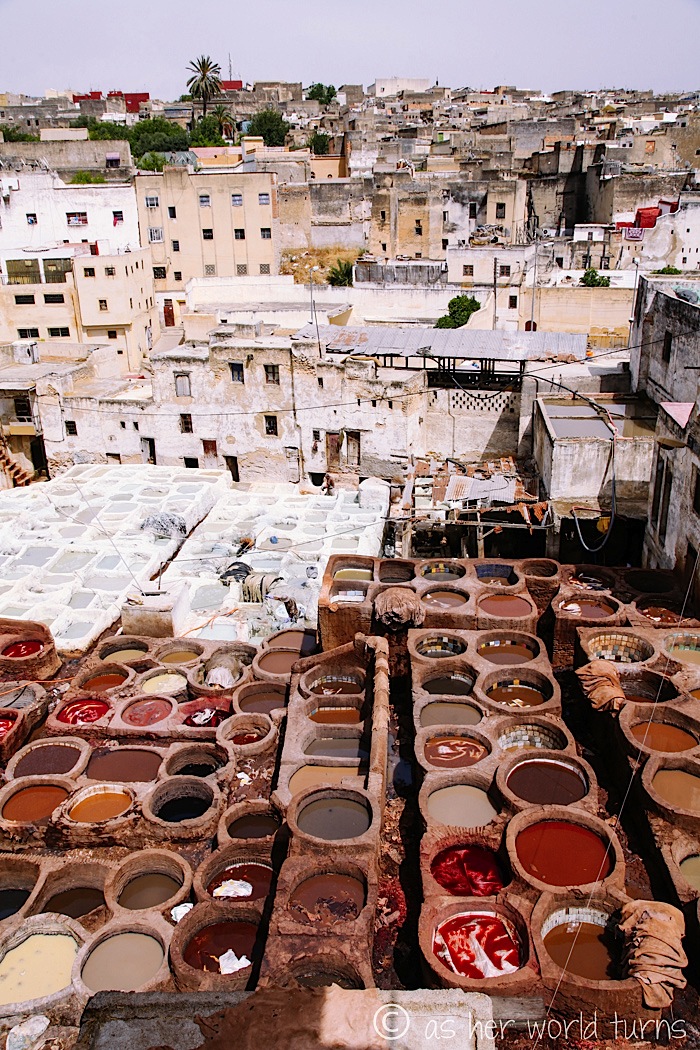
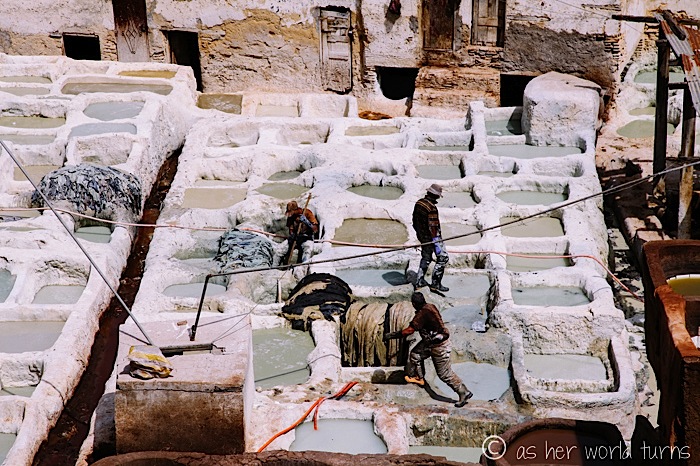
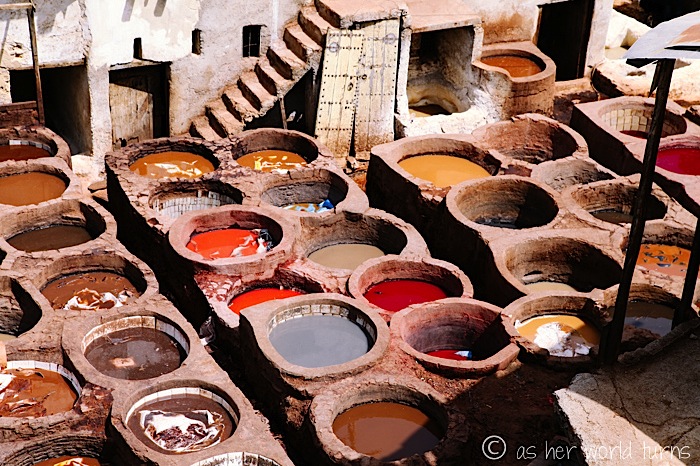
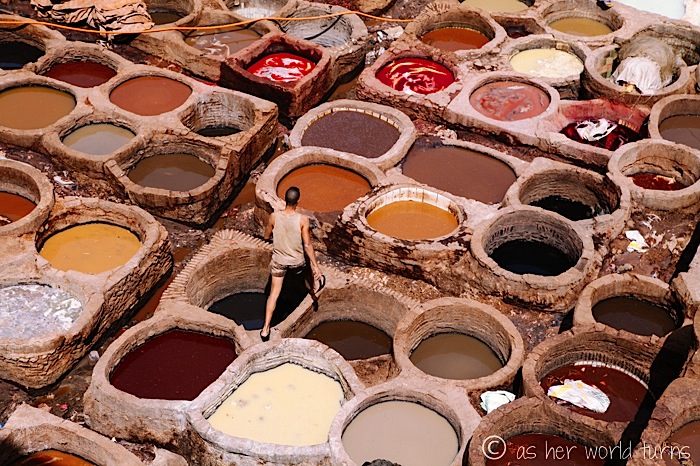
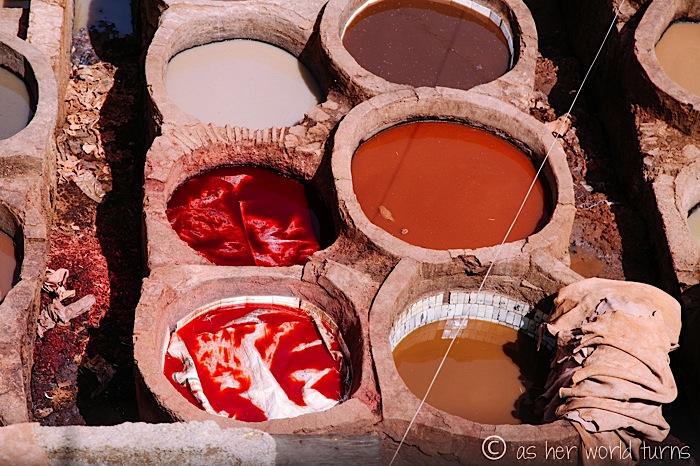
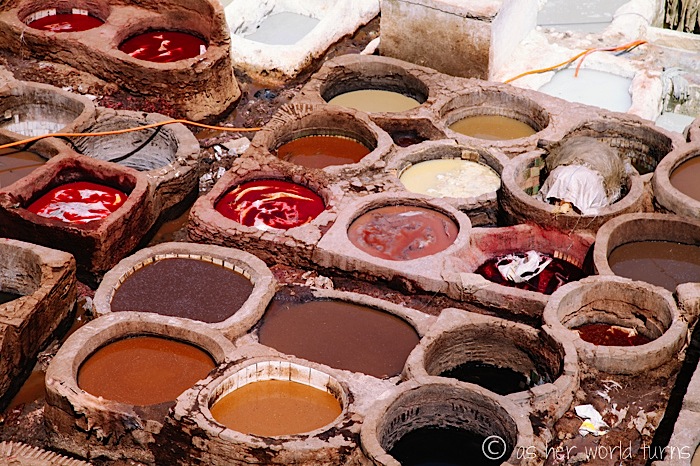
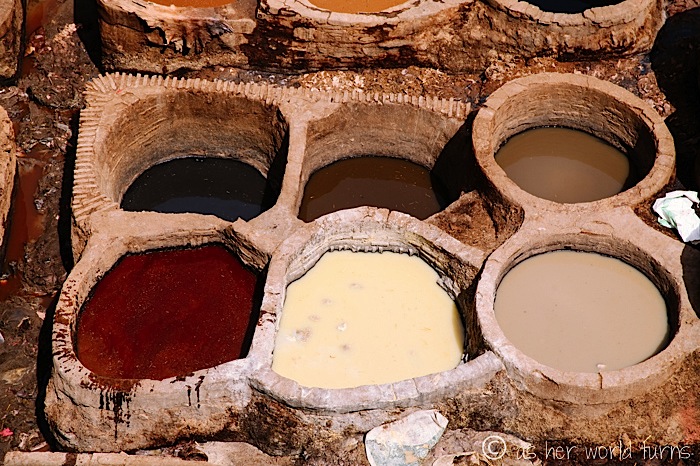
The vats of dye are used to color leather goods. Workers stand over (and sometimes climb into) these giant drums of liquid to soak the hides of cows, sheep, goats, and camels until each piece of leather is the desired shade. Then the leather is manufactured into wallets, purses, coats, shoes, and even furniture by three tanneries that operate in this area.
But before the dye process can begin, the hides must soak for two or three days in vats that contain a mixture of cow urine, quicklime, water, and salt — this loosens excess detritus from the skin. Tanners scrape this away and then lay out the skins on rooftops to dry out. Next they are soaked in a mixture of water and pigeon poop (which contains ammonia) to soften them. They are further massaged by employees who knead the skins for hours with their bare feet. Then it’s time for the dying process — these colors are made from natural elements like poppy flower (red), henna (orange), cedar wood (brown), mint (green), and saffron (yellow). Olive oil adds sheen. Chemicals are also likely used but details are not provided by the tanneries.
(Thanks to this article for detailing the leather tannery process and refreshing my memory in this months since I took this tour!)
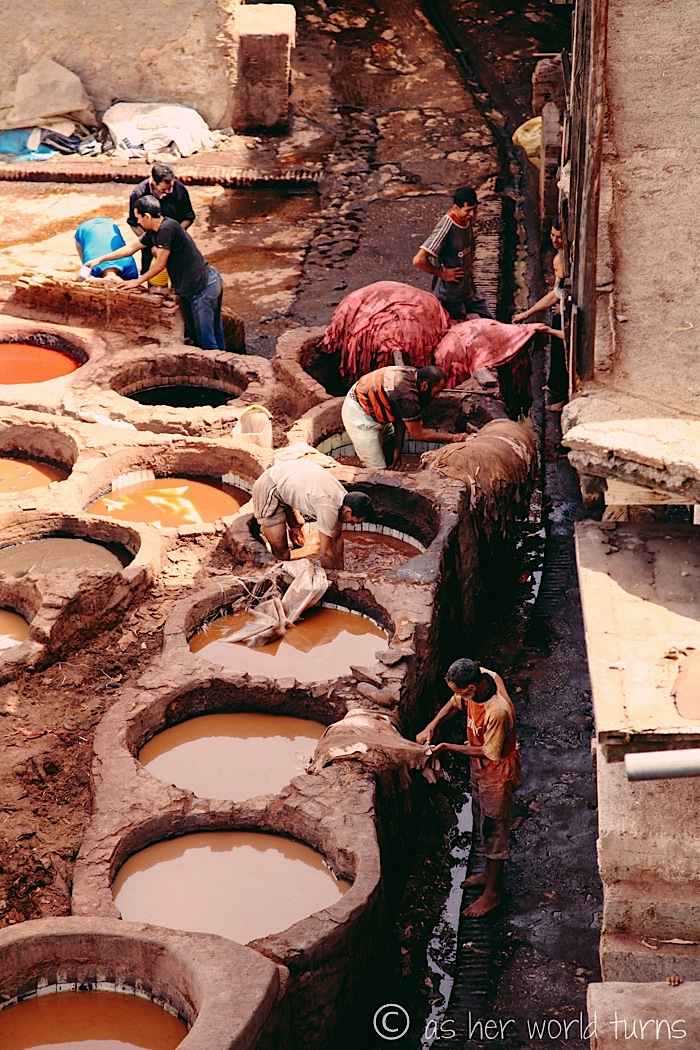
It’s hard labor and employees work through the foul stench all day long.

I’m desperate to get a closer look at the vats below, but our guide strongly recommends I stay up on the balcony because he thinks locals will gouge me for a tour. I have friends who’ve visited the vats during their separate travels in Fes — shout out to Phil and Mike, who both took outstanding photos of the tannery workers — and I regret that I didn’t push the matter and attempt to gain access. For a small price there are locals willing to guide tourists, just bargain to get a good price before entering.

Our group spends time in this tannery shop, looking over several floors of leather goods available for sale.
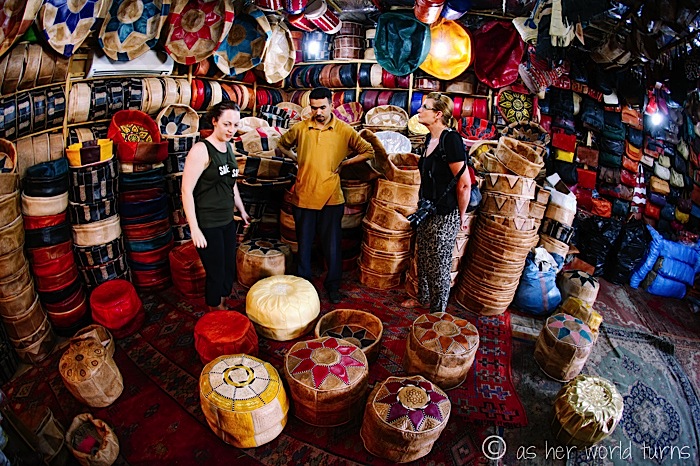
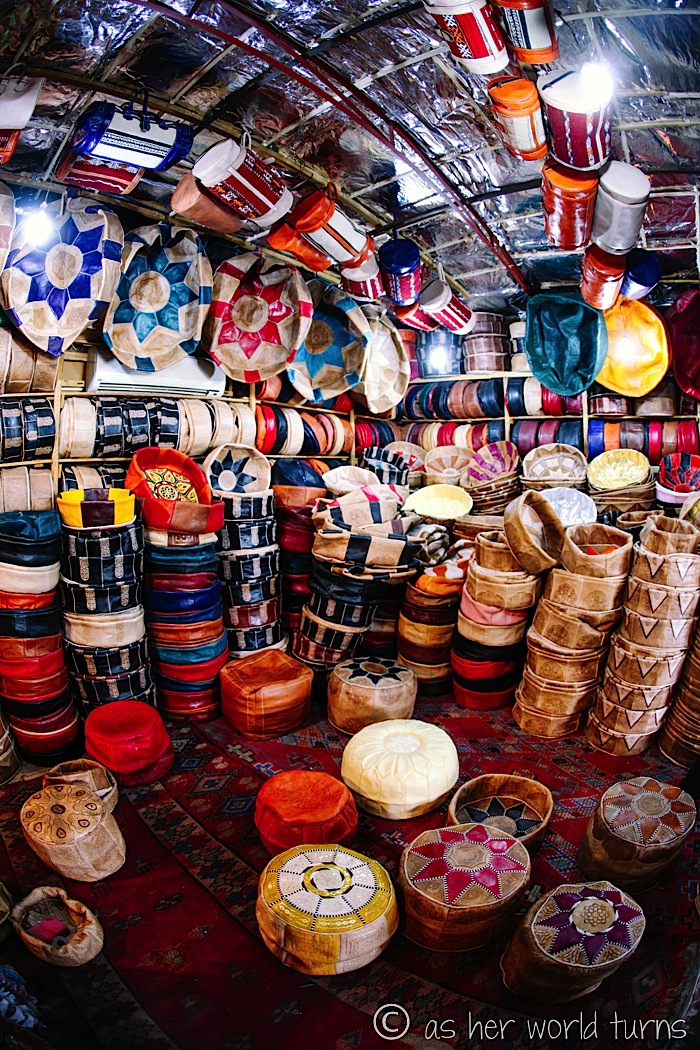
My tour mates are primarily interested in what they refer to as ‘poofs’ — these leather drums you can sit on. They come in endless varieties of color and design, and they fold down to take up practically no space in suitcases. Once you’re back home just stuff them with newspaper or a similar cheap filling.
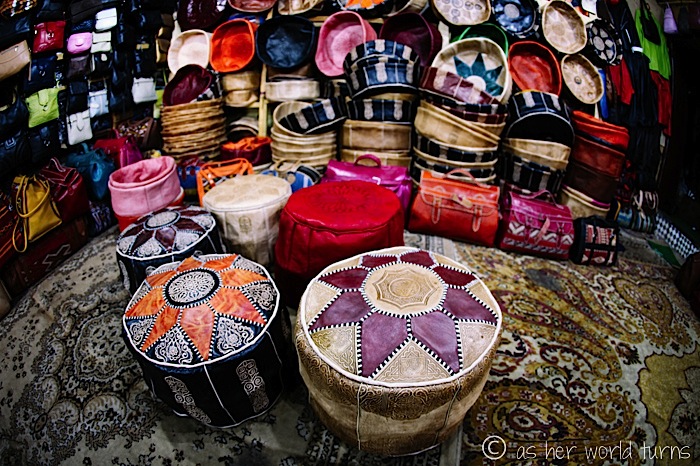
Other leather goods for sale in a rainbow of shades:
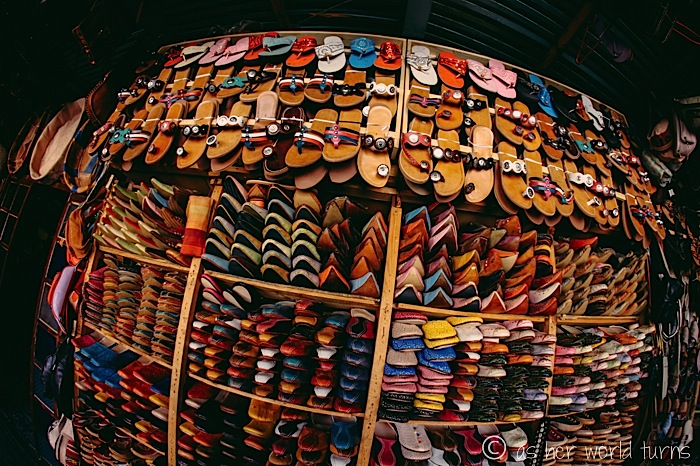
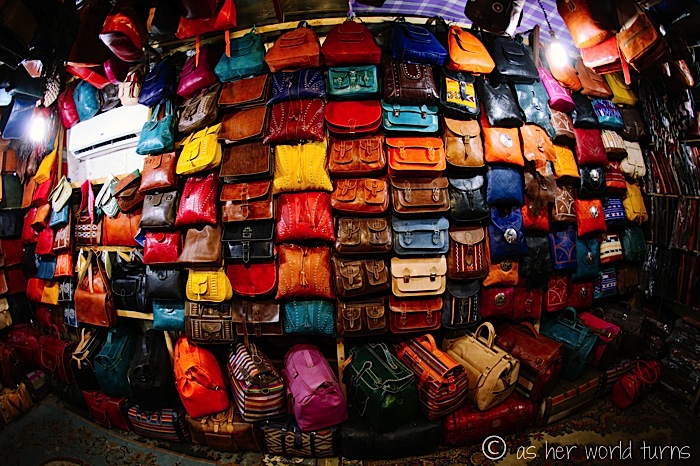
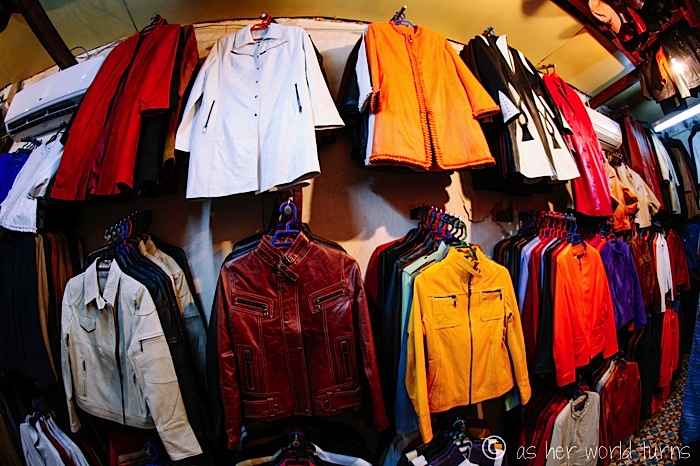
Can you believe I don’t buy anything? It’s tempting, but I don’t have the space to carry it.
I get bored quickly and our guide Mohamed tells me there’s another balcony further up where I can take more photos.
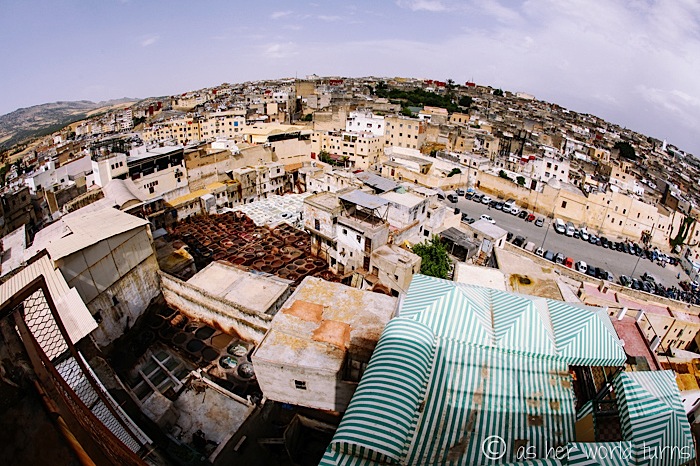
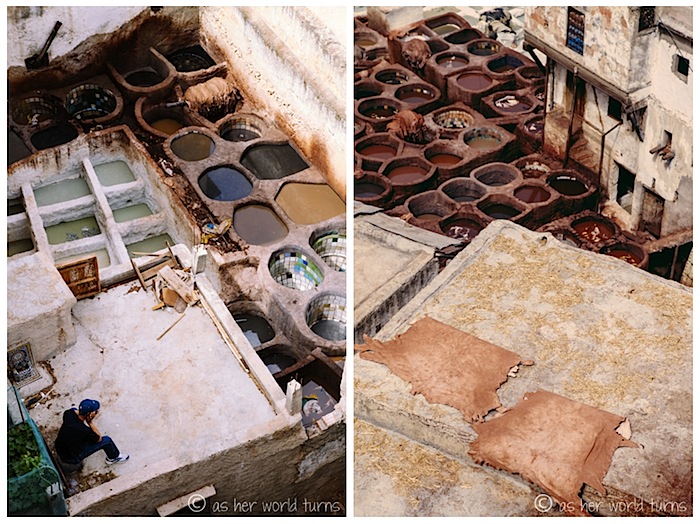
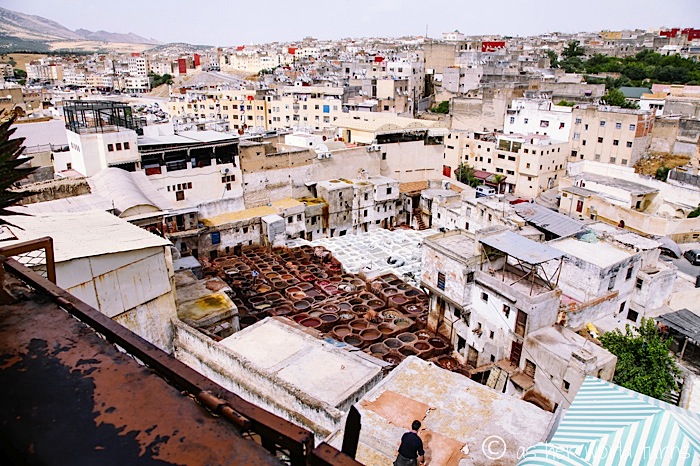

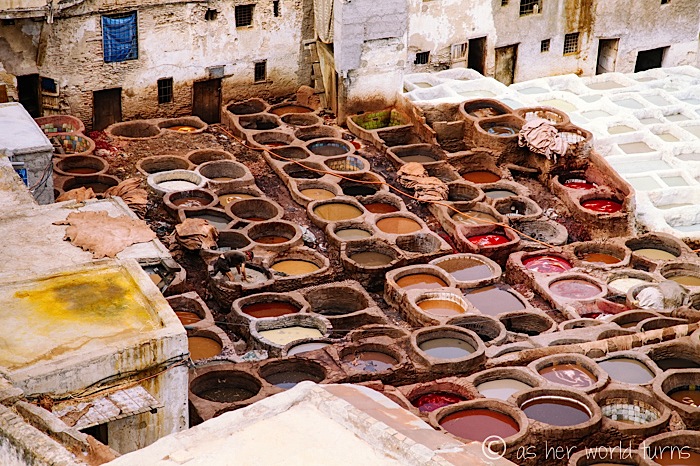
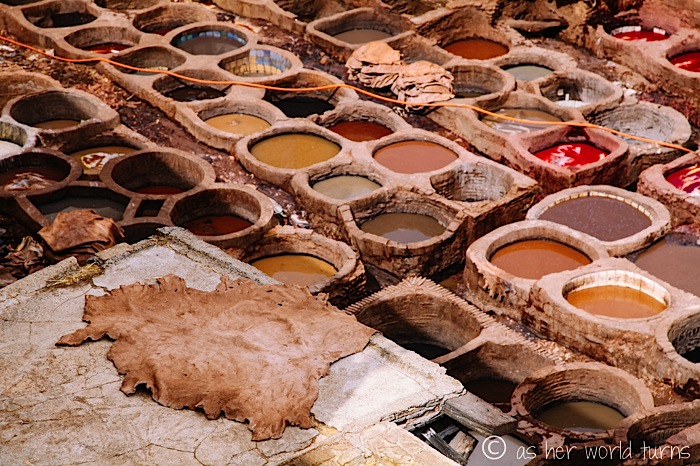
Once everyone has had their fill of leather goods, we move on to textiles. There’s a shop nearby where we stop for a brief demonstration.
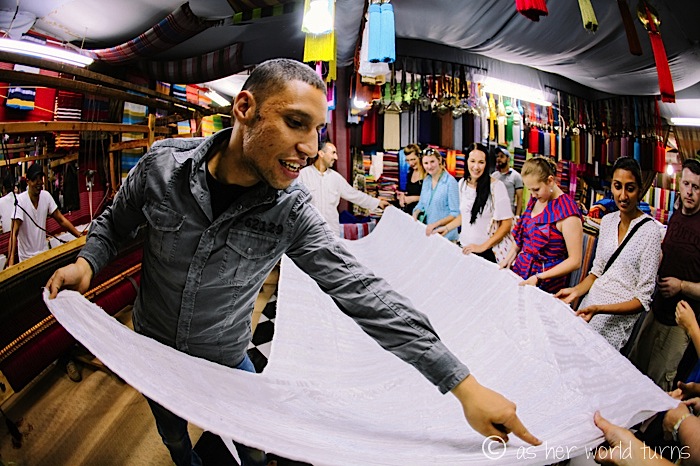
This is a fun stop because we’re encouraged to play dress up — a delightful assignment our group. The employees help us properly drape scarves around our heads and shoulders. Then it’s time for a photo shoot. Believe it or not, I end up purchasing a scarf… one of the few souvenirs of my entire trip in Africa.
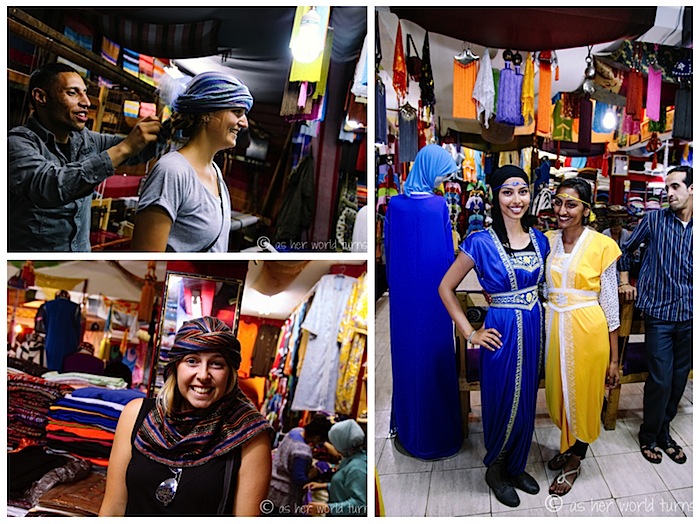
We’ve had a fabulous time in Fes. More from Morocco next week!
Thanks to Nomadic Tours for discounting my tour in exchange for photography and blogging. Opinions are my own.

